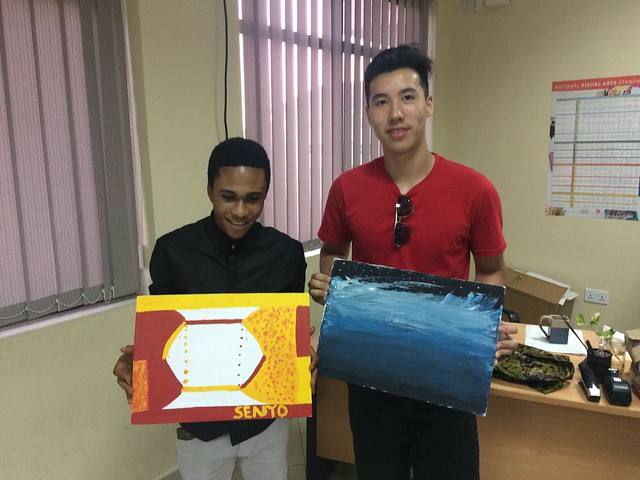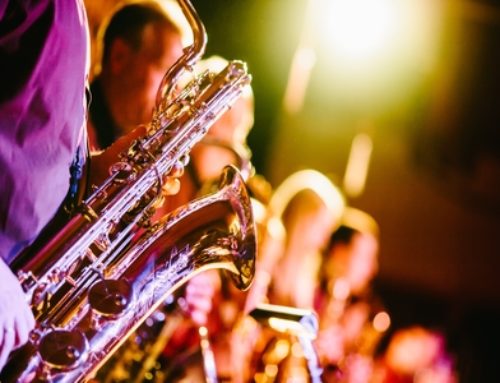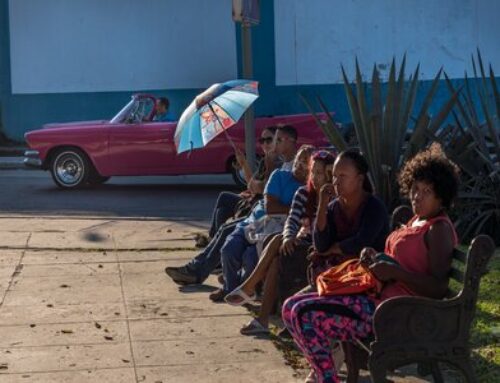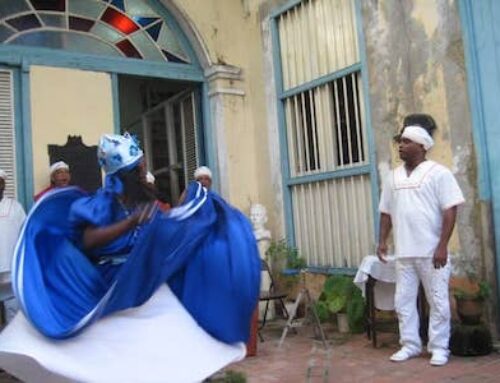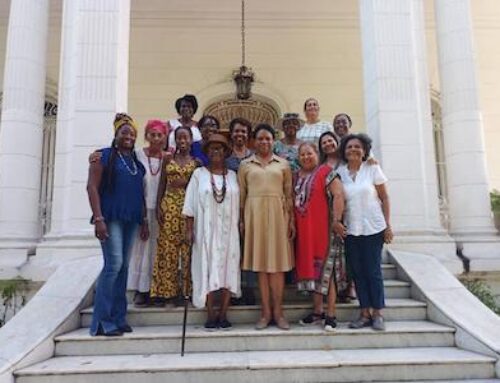Altruvistas recently collaborated with Sam Wold, a history teacher and advisor for the Amnesty International Club at Lake Forest Academy in Lake Forest, Illinois, on an educational tour to Ghana. Wold led a group of Lake Forest Academy students on a 2-week tour to explore the history and human rights in Ghana. Wold shares his inspirations for the tour and experience in Ghana.
Our Lake Forest Academy group continues their educational tour with a visit to Assin Manso to learn about the slave trade in Ghana. #culturalexchange #educationaltour #altruvistas #travel
Posted by Altruvistas on Tuesday, March 28, 2017
Altruvistas: Why did you choose Ghana as a destination for your student tour?
Wold: Our school had a few connections to a few different organizations that are at least partially based in Ghana. I’m the Amnesty International Club advisor to the school so that was the start. I connected with an organization called Right to Be Free and got in touch with Lorraine Dillon (founder & president) who lives in Lake Forest, Illinois. I connected with her then Eric Peasah who is the other founder of the organization in Ghana. He was coming through doing different speaking engagements so I had him come in to speak at our school. I learned more about his organization and that was sort of the first connection.
I also do a summer program with students called the Global Youth Leadership Institute and the first year was in Connecticut. On the last day, a man named Kojo Bey came in to lead a drum circle and taught traditional African drumming. He had also started a school in Ghana so I started conversing with him about his work there and the school he started in his village.
Those were the two logical connections for a trip to Ghana and different service opportunities for the students.
Altruvistas: What were some highlights of the trip?
Wold: It’s a hard question. I’ve done about 9 trips with 3 different schools I’ve been at and there’s a different feel to this kind of trip because it was more service based and more about community involvement. You almost have to take the trip in its entirety, I think, to understand the impact and even the highlights. But when I had different conversations with the students, the one that kept coming up was the deaf and blind school (Cape Coast School for the Deaf and Blind) we visited in Cape Coast and also just the interactions with the children in all the different villages. In general, on a lot of the trips I’ve led, students really enjoy it and I always enjoy that too.
For me personally, I’ll probably have to say just the discussions with some of the children (who are adults now) that have been trafficked. Seeing the theoretical that we studied in the classroom and getting there and seeing how these kids have been saved, living healthy lives, entering universities, wanting to pursue medicine and going to law school and seeing a complete turn around for the kids.
Altruvistas: By visiting Ghana, how did it help you understand the country, culture or issues more?
Wold: One thing I’ve always taught in my class – I teach a human rights elective and world history – is connecting the past with the present. I’ve talked about industrialization in my class and child labor during the industrial era and I try to connect it with the present. For homework, they watched a documentary about the chocolate industry and how children are kidnapped and forced into it. In Ghana, we went to a cocoa plantation, saw where the cacao is coming from and saw the connection between modern day slavery and the trans Atlantic slave trade when we went to the Cape Coast Castle and traced the path where people from Africa were forced into slavery. So I think being in Ghana amplified those connections.
I’ve even presented to the school with Right to Be Free where we talked about things you can do to prevent child trafficking, fair trade chocolates and things like that. When students hear myself or others speak about fair trade and then they go and see a fair trade chocolate cocoa plantation, it just makes those connections so much stronger.
People in Ghana were very welcoming everywhere we went and the students really appreciated how engaged everybody was. Where ever we went they just wanted to speak to us and learn about where we’re from and why we were there. For many of the students, they’ve never been to a developing country before so it was just eye-opening and gave them a new outlook.
Altruvistas: What are some insights you have about your time in Ghana?
Wold: I’ve lived abroad and traveled quite a bit. I’ve been in other places where I had the same kinds of feelings. One thing I brought back from this trip was, every place I went I kind of got pulled aside because I was the leader of the trip and asked to help (such as for more support and financial contributions).
As a teacher, obviously, I don’t have those resources but it did make me realize how much help is needed. And it’s not even big items that are needed, for example, it’s something like a basketball hoop and these things can be supported by small groups of people, organizations, and students. So we’re really going to try to link the Amnesty International Club and make it an annual fundraiser to focus on the different organizations we met in Ghana. It’ll be more of a continuous process instead of a one-time support and we move on to something else. I want the students to make the connection that we’re going to continually support the work that’s being done. Especially since we saw the process of children that had been taken, forced into trafficking and where they’re at now; I hope it is the element that will stay with me and the students who are in the club.
—
For the students’ perspectives on the History and Human Rights in Ghana tour, please visit their blog – https://lfaghana2017.wordpress.com/.

